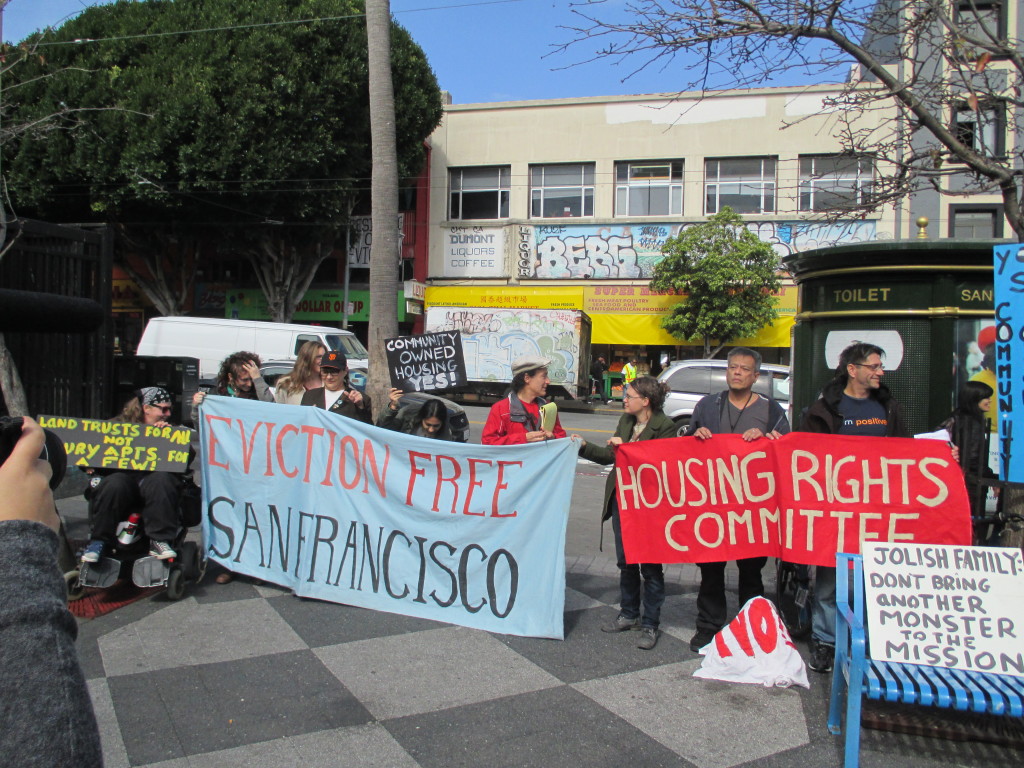Planners and academics from all over the world are looking at SF and saying:WTF?

By Tim Redmond
APRIL 10, 2015 — I am in Miami, at a conference of the Urban Affairs Association, where San Francisco’s housing crisis is attracting international attention.
I came courtesy of the University of San Francisco, where I will be teaching in the fall, to address how my city got into the horrible mess.
From the discussions on my panel –and even more from conversations in the hallways, and at lunches and cocktail parties — I got the impression it’s a question scholars all over the world are trying to ponder: If San Francisco is among the most progressive cities in the nation, how did we so utterly fail to preserve affordable housing – and why is city policy driven by the tech industry and trickle-down economics?
My thesis, of course, is that the Invisible Hand of Adam Smith didn’t create $4,000 a month rents and 12,000 evictions – it was the policy decisions of the Lee Administration, which has to rank among the most clueless civic leadership institution in modern history.
Did anyone really think we could give huge tax breaks to tech companies, and attract tens of thousands of new workers to the city (while never requiring beneficiaries of the tax breaks or the developers and commercial landlords who profit mightily off the boom to build enough new housing for them) without creating a world-class disaster that they are talking about as a case study at an international urban affairs conference?
Does anyone really think it’s a good idea to do this sort of economic development without first protecting the vulnerable communities that are in the path of massive displacement?
Apparently most of the academic researchers who attended my session agreed with me. The message I got was that San Francisco is becoming a case study in how not to do housing and economic development.
The question that Corey Cook, professor of political science at USF and my co-panelist, raised was a bit disturbing:
Why, with all of the failures of the Lee administration and the crisis heard around the world, does the mayor have no real challenger in 2015?
There are a lot of theories. Rachel Brahinsky, assistant professor at USF and the third member of my panel, talked about the “bicycle lanes and Burning Man” white progressives, who are willing to accept politicians who offer all sorts of environmental, lifestyle, and social-issue agendas – but who won’t take on the really tough, gritty economic issues (say, taxing the tech wealth to pay for affordable housing). Cook offered the dilemma that in San Francisco, with all its progressive achievements, we have decided that technology is going to solve all of our problems.
And of course, we discussed the oligarchy problem: When one person (Ron Conway) can threaten to spend so much personal money to defeat a candidate, serious people fear getting into the race.
Also, the polls show that Mayor Lee is popular – but I haven’t yet seen a poll that looks at his job performance on economic and housing issues, as opposed to the overall impression people have of a mayor widely acknowledged to be a nice, personable man.
But back to the conference.
One of the most fascinating discussions I attended centered on the role that government (“the state,” to academics) plays and should play in urbanism. That panel quickly evolved into a discussion that I think it and ought to be central to all political debate in this country today:
How did we manage in the past 30 years to utterly delegitimize government, and what can we do to fix it?
We’re not talking about a classic right-left split here: Only 10 percent of Americans today trust the government to do the right thing most of the time. And while the policy solutions that the left has always looked to typically require more government intervention, the left has given up on government even more quickly than the right.
“Those of us on the left, which has supported collective action, are increasingly rejecting the state,” Robert Lake, a professor at Rutgers, noted.
There are good reasons for that, Lake said: The government has given us Vietnam, the fake weapons of mass destruction in Iraq and the subsequent war, Citizens United, and Michelle Bachman, among other problems.
But the right wing, which typically distrusts government, has been using its power to advance conservative goals. “They have taken control of local school boards to force the teaching of creationism,” Lake said. “They have taken over state legislatures to close family planning clinics. They control the governorships of 31 states that are racing to see which can be the first to destroy public-employee unions.”
The right, in other words, has recognized the value of the state.
“What we lose when we abandon the state is the possibility of democracy,” Lake concluded.
Jonathan Davies, a professor at De Montfort University, gave a lovely Marxist analysis of the state in urban policy, focusing a bit too much (I think) on state-sanctioned violence but also noting that austerity (which is the watchword of politics all over, including California) amounts to the “cumulative incapacitation” of the state.
David Imbroscio, who teaches at the University of Louisville, talked about how both the Republicans and the Democrats have accepted neo-liberal economic policies that don’t even begin to deal with the real anxieties people in this country face.
You can bring the question right back to San Francisco: Why is this famously liberal city afraid of using the power of local government to redistribute the vast wealth that has been created? Why are we restoring to tax breaks and other neo-liberal incentives that allow big corporations to make and keep more money?
Why is nobody challenging Ed Lee for mayor?
They’re asking it in Miami, and we ought to be asking it at home.




